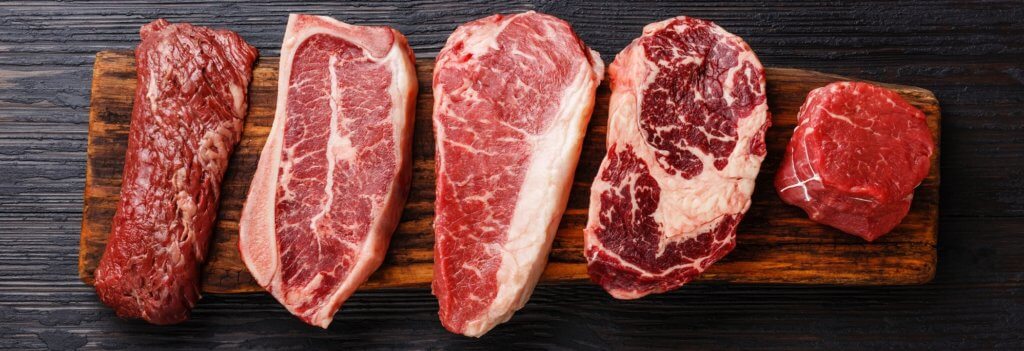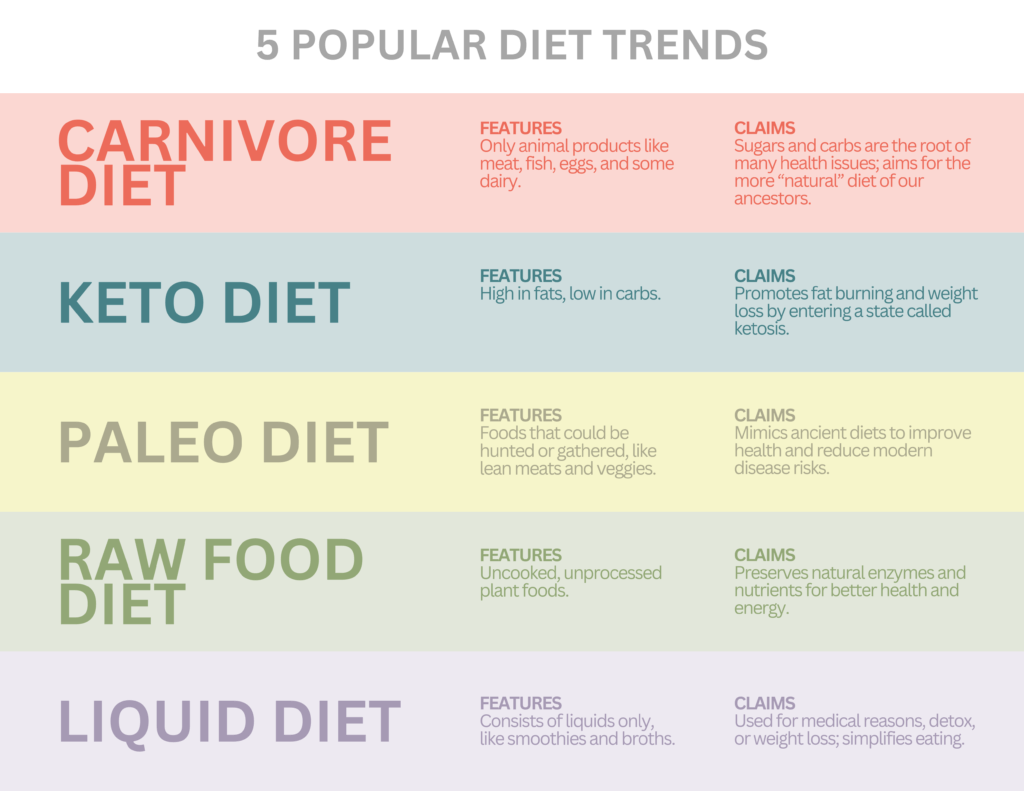03 Feb The Benefits and Risks of the Carnivore Diet
Studies show that the average American adult consumes 17 teaspoons of added sugar every day. That is more than three times the recommended amount! Many say this excess sugar is to blame for many of today’s health problems. So, what can be done? Many have looked to our ancestors for guidance. The result? The Carnivore Diet. In this article, we will break down this trendy diet, uncovering its benefits and potential risks.
What Is the Carnivore Diet?
The carnivore diet involves eating only meat, just like carnivores do. If it used to swim, walk, or fly, it’s on the menu. This diet is similar to the keto diet but goes even further. It’s an elimination diet that cuts out all carbs, not just some. People on this diet also eat eggs, butter, and bone broth. Some might add cheese, yogurt, and other dairy foods as long as they’re low-carb. However, fruits, veggies, grains, and essentially anything that doesn’t come from an animal are off the table (alcohol included).
Allowed Foods:
- Meat: beef, pork, lamb, chicken, turkey, organ meats (like liver and kidneys)
- Fish: salmon, mackerel, sardines, herring, tilapia, crab, lobster
- Other animal products: eggs, bone marrow, bone broth, lard
- Low-lactose dairy: butter, hard cheese (such as cheddar and parmesan), heavy cream
How Does It Work?
Research has proven that when you stop eating carbs, your body uses fat for energy. This is called ketosis and is the rationale behind the keto diet. Without extra carbs, your body can also keep your blood sugar levels steadier. High blood sugar can make your body inflamed, which can cause lots of health problems. Additionally, fish has omega-3s, which help fight inflammation. These are the facts that the carnivore diet bases its benefits on.
Claimed Benefits:
- Weight loss
- Improvement in autoimmune disease symptoms
- Improvement in inflammatory conditions
- More energy
- Reduced depression and anxiety
- Higher testosterone
- Diabetes management
What Are the Risks?
Even though some people say this diet has helped them, it’s very different from what most health studies say is good for us. Eating only meat means you don’t get a lot of the good stuff our bodies need. Also, many of the things we are taught to avoid in a healthy diet are found in excess in the carnivore diet. This makes for a risky combination.
Risks:
- Lack of vitamins and minerals: Not eating fruits and vegetables can lead to a lack of important vitamins and minerals.
- Lack of fiber: Fiber comes from plant-based foods and is essential for stomach health.
- High levels of saturated fat, cholesterol, and sodium: These can contribute to long-term heart issues.
- Risk of cancer and heart problems: Eating lots of red and processed meat is linked to heart disease or stomach cancer.
- Disordered eating habits: Such a restrictive diet can lead to unhealthy eating behaviors.
Is the Carnivore Diet Right for You?
Before you decide to try the carnivore diet, think about a few important points. The big claims about this diet don’t have much scientific proof yet. We’re still waiting for more studies, especially ones that look at the effects over a long time. Also, this diet isn’t just risky; it can be expensive! Animal-based products tend to be much more expensive than plant-based. On the other hand, many people have seen the short-term benefits of this diet. These are all important things to keep in mind before trying this diet. Most importantly, if you’re going to make big changes in your diet, make sure it’s safe and won’t hurt your health, whether mental or physical. Talking to a doctor or a dietitian is always the best move.
Conclusion
While the carnivore diet is interesting, it also has people debating. Some say it’s made a big difference in their health, while some say there’s no evidence of its benefits. With what we know now, trying this diet seems to be a risky choice. That said, new research may surprise us. Most importantly, remember to always talk to an expert before making big changes to your diet. They can give you advice that fits just right for you and your health.


